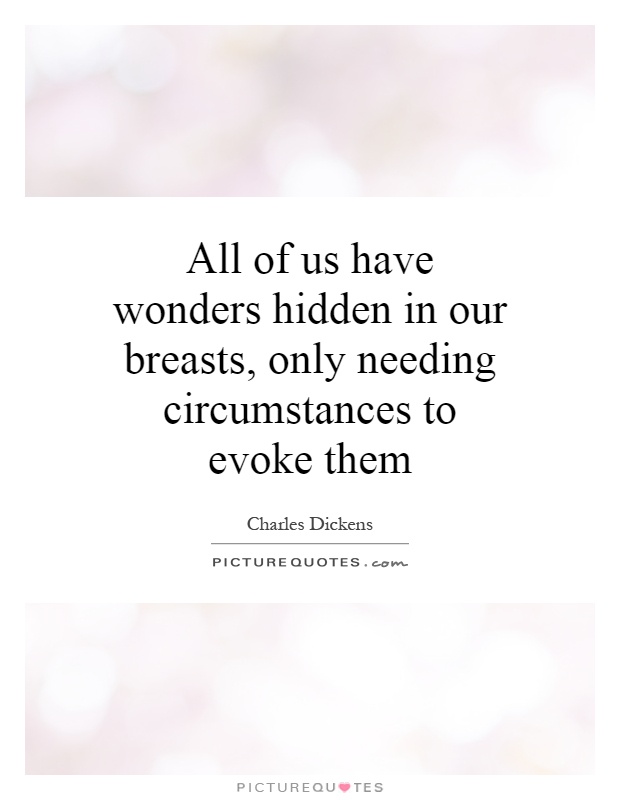All of us have wonders hidden in our breasts, only needing circumstances to evoke them

All of us have wonders hidden in our breasts, only needing circumstances to evoke them
Charles Dickens, one of the most renowned and beloved authors in literary history, certainly had wonders hidden in his breast that were brought to life by the circumstances of his time. Born in 1812 in Portsmouth, England, Dickens experienced a childhood marked by poverty and hardship, as his father was imprisoned for debt and young Charles was forced to work in a factory to support his family. These early struggles undoubtedly shaped his worldview and fueled his passion for social justice, which is evident in his novels that shed light on the plight of the poor and marginalized in Victorian society.Dickens' ability to evoke empathy and compassion in his readers can be attributed to the circumstances of his own life, as he drew upon his own experiences of poverty and injustice to create vivid and relatable characters who grapple with similar challenges. In works such as "Oliver Twist," "David Copperfield," and "Great Expectations," Dickens explores themes of poverty, class inequality, and the corrupting influence of greed and power. Through his characters, he exposes the harsh realities of life for the lower classes in 19th-century England and calls attention to the need for social reform.
Dickens' keen observational skills and deep empathy for his fellow human beings allowed him to capture the essence of Victorian society in all its complexity. His characters are not mere caricatures, but fully fleshed-out individuals with hopes, dreams, and flaws that make them both relatable and compelling. Whether it is the orphaned Oliver Twist, the humble clerk Bob Cratchit, or the enigmatic Miss Havisham, Dickens' characters resonate with readers because they embody universal truths about the human experience.












 Friendship Quotes
Friendship Quotes Love Quotes
Love Quotes Life Quotes
Life Quotes Funny Quotes
Funny Quotes Motivational Quotes
Motivational Quotes Inspirational Quotes
Inspirational Quotes